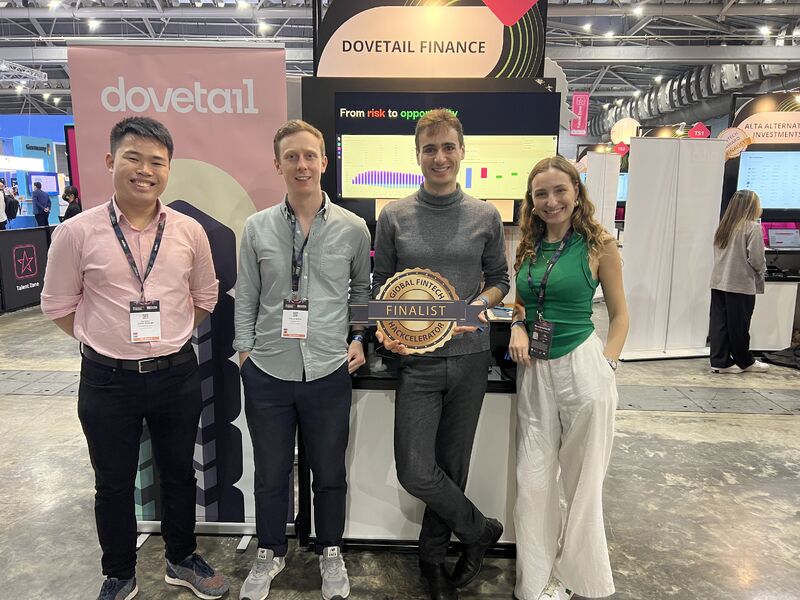Not knowing is a risk. Knowing is an opportunity.
That is the business case that pushed Octopus Ventures, a venture capital firm in offices in London and New York, to assess its portfolio of European tech startups for environmental, social and governance, or ESG, performance.
Octopus Ventures, part of the U.K. fund management firm Octopus Group, with north of $800 million in assets, is borrowing from the playbook of public-equity ESG and impact investors. The goal is to help its portfolio companies — including a luxury watch purchasing platform, an ad-tech software maker and a mattress manufacturer and distributor — lower costs, identify risks and opportunities, and present more compelling stories to their customers.
“We’re a traditional tech VC investor,” says Luke Hakes, an investment director at the firm. “But we believe in what people are doing with impact investing and sustainability — measuring all aspects of a company.”
That a large European venture capital firm is turning to ESG largely for its business advantages, not only its societal benefits, is a signal of the investment edge to be gained by attention to so-called non-economic factors. As that takes hold, venture capital and private equity investors can help drive attitude and behavior changes at the earliest stages of a venture’s life.
“If you don’t measure it, you can’t do anything with it,” Hakes told ImpactAlpha.
ESG Atlas
Octopus has engaged ClearlySo, a London-based impact investment bank, to help them with the assessment. In December, ClearlySo launched ATLAS, an online “impact navigator” for private equity and venture capital investors to map, track and report impact and sustainability. Octopus, who spent 18 months alongside ClearlySo building the product, is their first client.
It’s an underserved market, Lindsay Smart, ClearlySo’s head of impact, says of early and later-stage private venture investors. “There’s loads of capacity to make change. Not through proxy votes, but from the board. They can drive genuine change at a point in time that a company is small and nimble enough.”
The key in building ATLAS, Smart told ImpactAlpha, was to make it low-burden and immediately useful for the investor and the investment company. Through ATLAS, ClearlySo analysts review seven aspects of a company’s operations and products and services to deliver a concise and direct report, through an online portal, that includes results, actionable recommendations and opportunities.
“We want to see investors drive behavioral change within companies,” says Smart. “Help them improve their position, start to think about these things and tap into micro and macro trends.”
ATLAS was built with industry best-practice metrics such as IRIS. It is also mapped to the U.N. Sustainable Development Goals, which, “offer a powerful route for structuring and enacting impact — through an internationally adopted…framework, as Smart wrote recently.
Designed to engage a fast-moving venture capital and startup audience, “each ATLAS report is created to make for interesting reading, identify risks and capture sustainable opportunities,” says Smart.
Returns on investment
Octopus Ventures raises capital through Venture Capital Trusts, a form of publicly-traded private equity that allows individual investors to gain exposure to small and growing private companies in the U.K. In return for their high-risk capital, investors receive a tax credit of up to 30 percent of the investment and receive tax-free capital gains and dividends. Octopus Ventures has set up an evergreen trust that delivers returns in the form of dividends. In the 2015–2016 tax year, such venture capital trusts raised and channeled nearly $600 million to small business in the U.K.
Where Octopus Ventures gets its capital played a role in the firm’s decision to better understand the ESG performance of its investments. Retail investors increasingly want to know what portfolio companies do and the impact they’re having on the world, says Octopus’s Hakes. Octopus, with a portfolio of 55 companies, deploys about $125 to $250 million each year in new and follow-on investments.
Take an online furniture company with a complex supply chain and widespread distribution channels. “A company like this has a huge opportunity in terms of delivering on sustainable sourcing, optimizing natural resource use and ensuring the wellbeing of its suppliers,” says Hakes. “Impact is good for companies.”
The venture firm has completed ESG analysis on 20 percent of the portfolio. The rest, Hakes says, will be completed by August. “I think you always believe that adopting some of these sustainability practices is good,” he says. “What was not clear is how rapid some of the winds can be. Moving a factory to LED lights, for example, has immediate impact and an immediate ROI.”
How ESG will change the way Octopus Ventures invests remains to be seen, says Hakes, who says he wants the firm to be an example for others mainstream venture and private equity investors who haven’t yet come around to the value of ESG analysis.
“We want get it out there and see the impact,” he adds.











